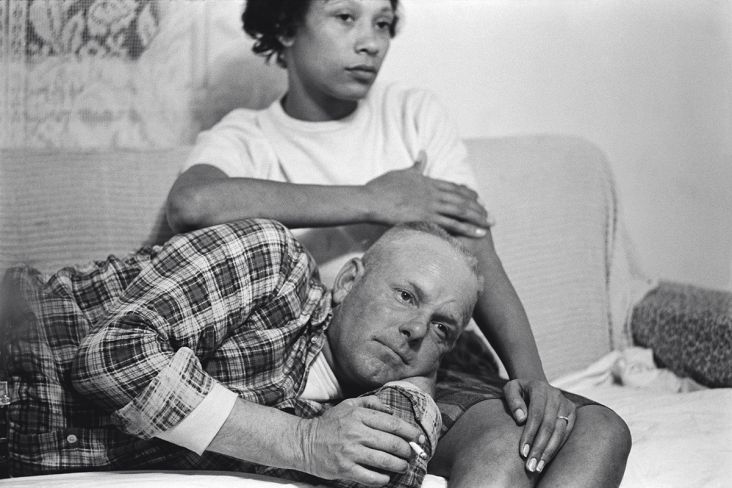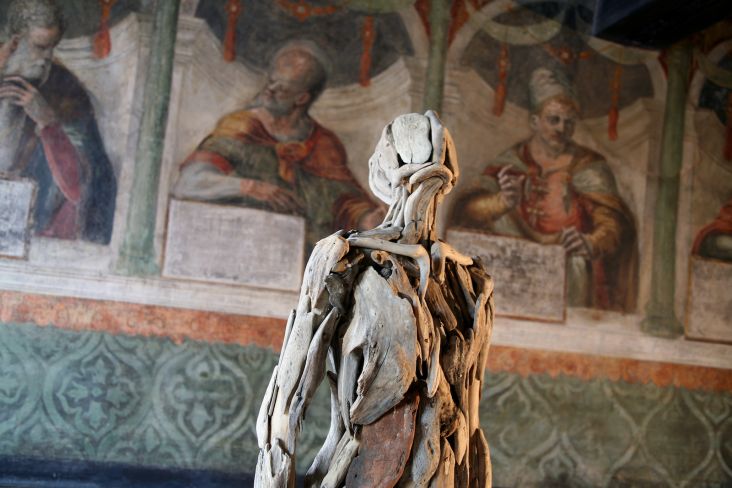Rock Against Racism: Syd Shelton's photographs of a movement in 1970s Britain
Between 1976 and 1981, the movement Rock Against Racism (RAR) confronted racist ideology in the streets, parks and town halls of Britain. It was formed by a collective of musicians and political activists to fight fascism and racism through music.
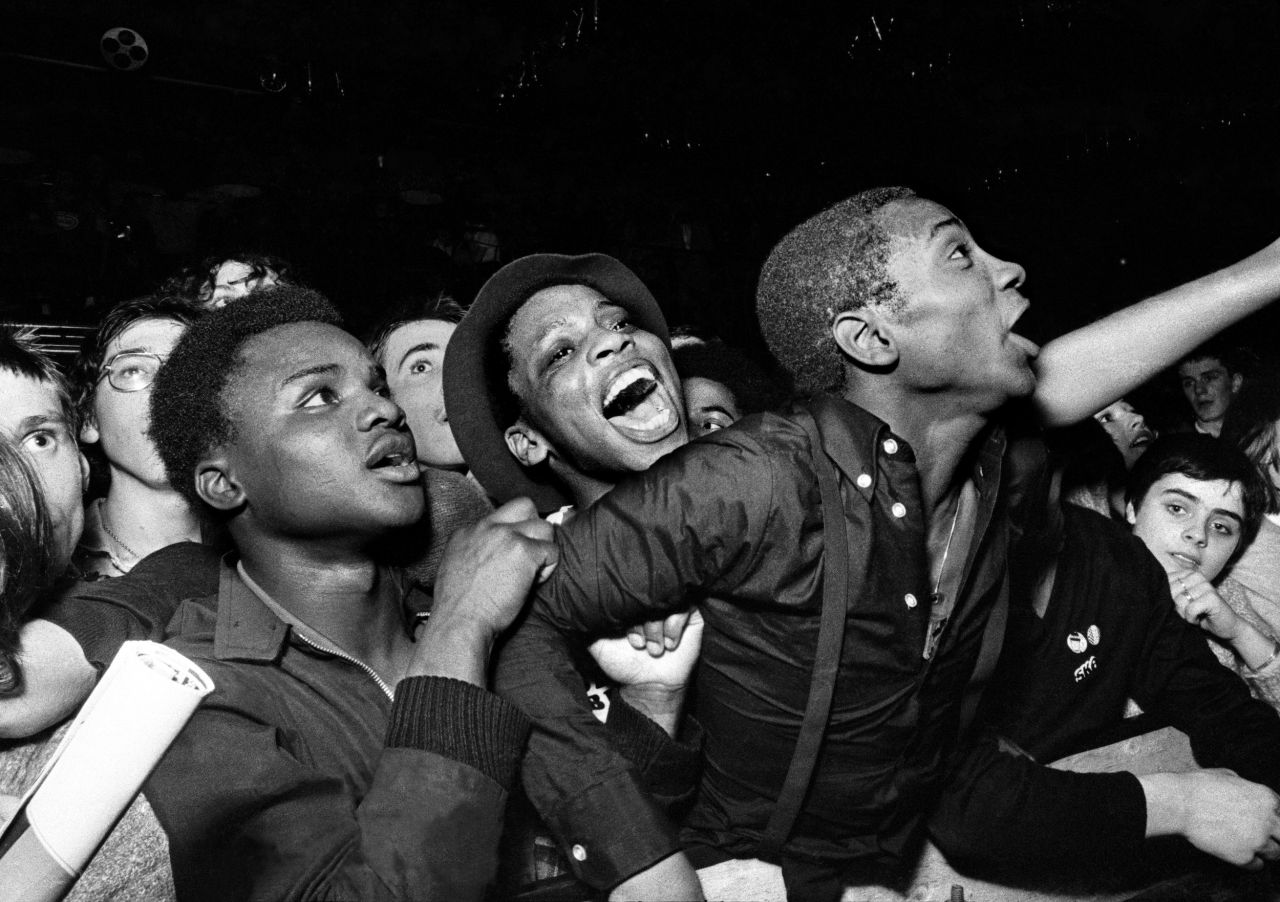
Specials fans, Potternewton Park, Leeds 1981
Enter Syd Shelton. His photographs document the volatility of a country divided across race, class and gender. They expose the ferocity of cultural difference being hammered out on Britain’s streets through the late 1970s, at a time when racist skinheads danced to Jamaican ska, punks embraced reggae and black kids reached out to punk.
Shelton photographed performers such as The Clash, Elvis Costello, Misty in Roots, Tom Robinson, Au Pairs and The Specials as well as the audiences at RAR gigs and carnivals across England. He captured the history-making RAR Carnival 1 at Victoria Park, London in 1978, and demonstrations such as the Anti National Front Demonstration in Lewisham in 1977. Shelton also took contextual social and cultural images that informed the politics of the movement across England and Ireland. We asked Shelton a few questions about the series...
Looking back, do you feel much has changed – particularly in the current climate?
"After the onslaught of Brexit, May and Trump, in some ways we are back to a mythical 1950s Britain but really everything has changed. The mid 1970s found Britain in the middle of the first great recession since the 1930s, with people at the bottom paying the heaviest price as the International Monetary Fund made cuts a condition of propping up the Callaghan Labour Government. Then the right wing media, institutions and the neo Nazi National Front pointed their hate at the Afro Caribbean and Asian communities as the scapegoats for all that was wrong with society.
"Now that same xenophobia and racism is directed at Muslims and refugees. But resistance is also back on the streets. After more than three million people marched for women's rights all over the world in response to Trump – there is a reason for optimism."
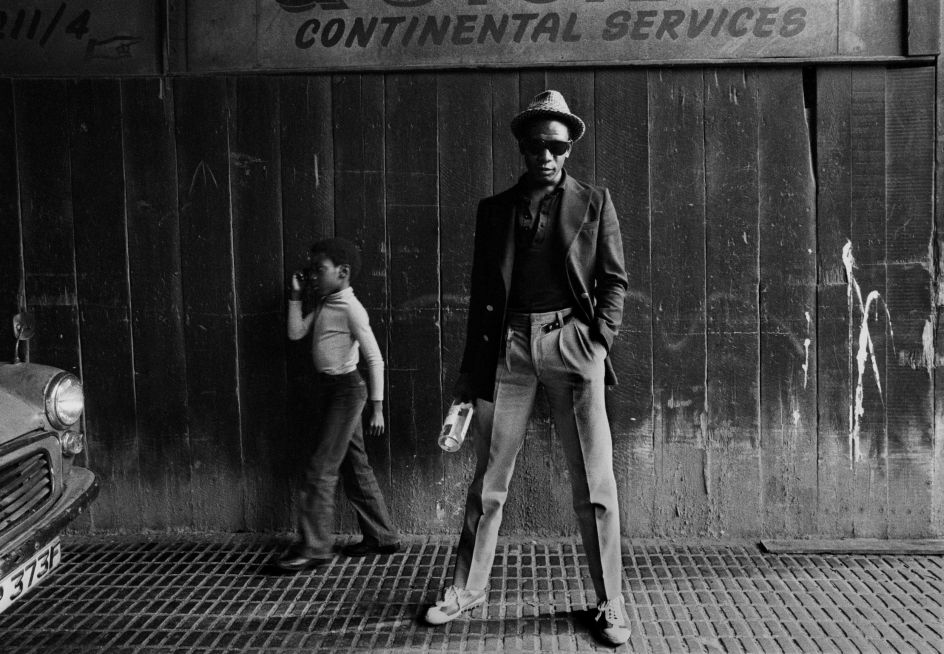
Bagga (Bevin Fagan), Hackney, East London 1979. Lead singer of British reggae band Matumbi with the son of Dennis Bovel, founder of the band
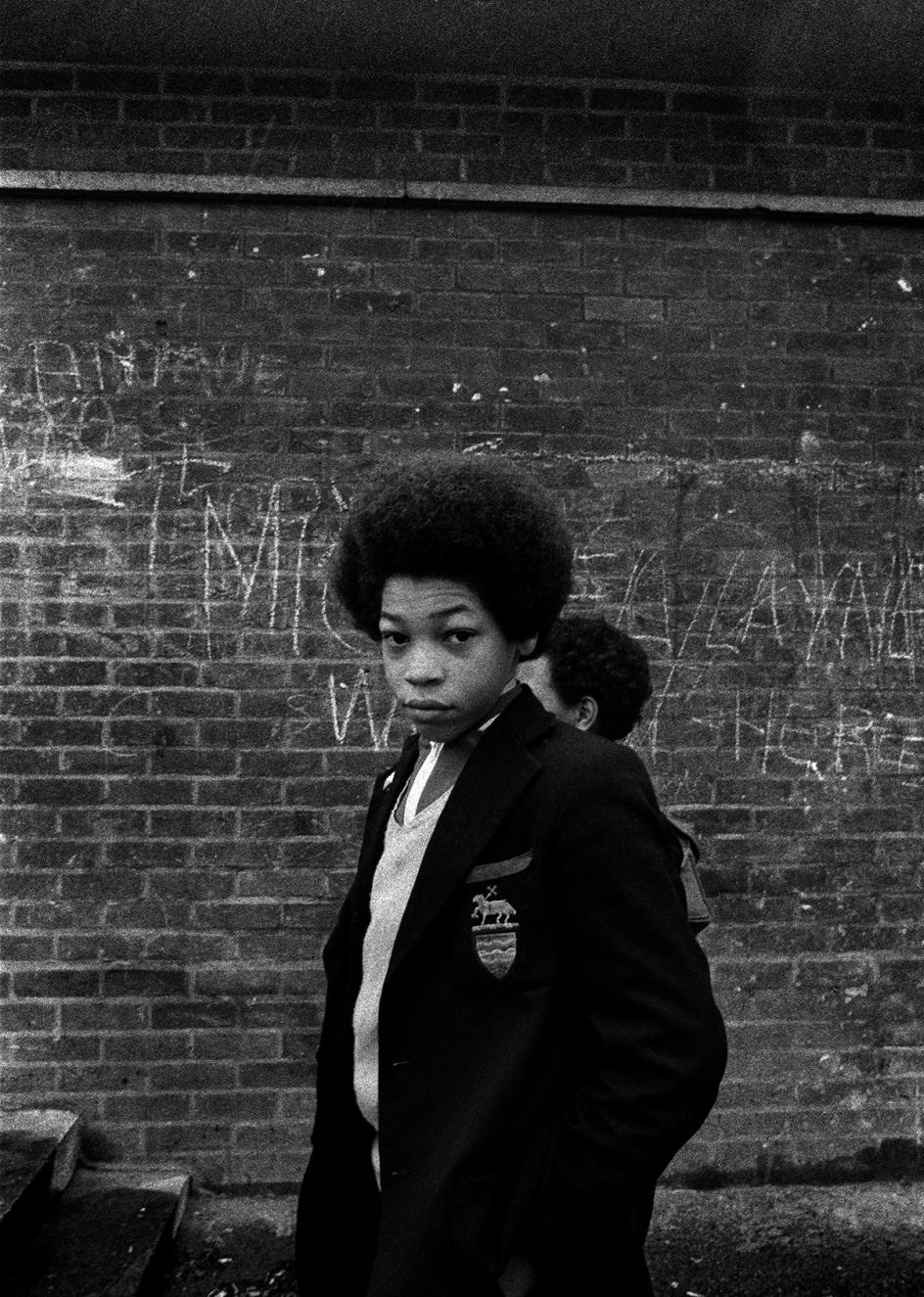
Tulse Hill School Brixton, London 1977
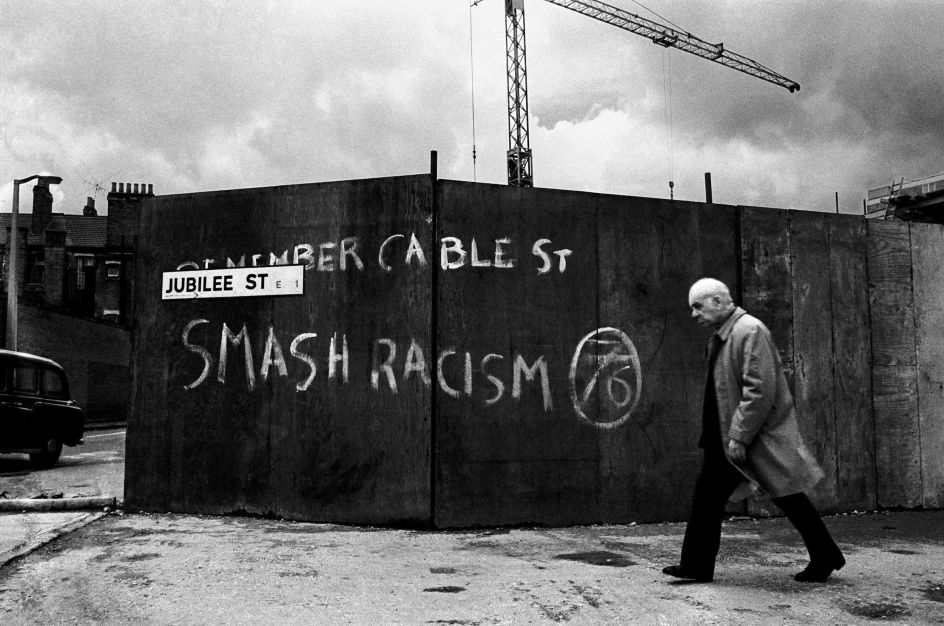
Jubilee Street, Stepney, London 1977
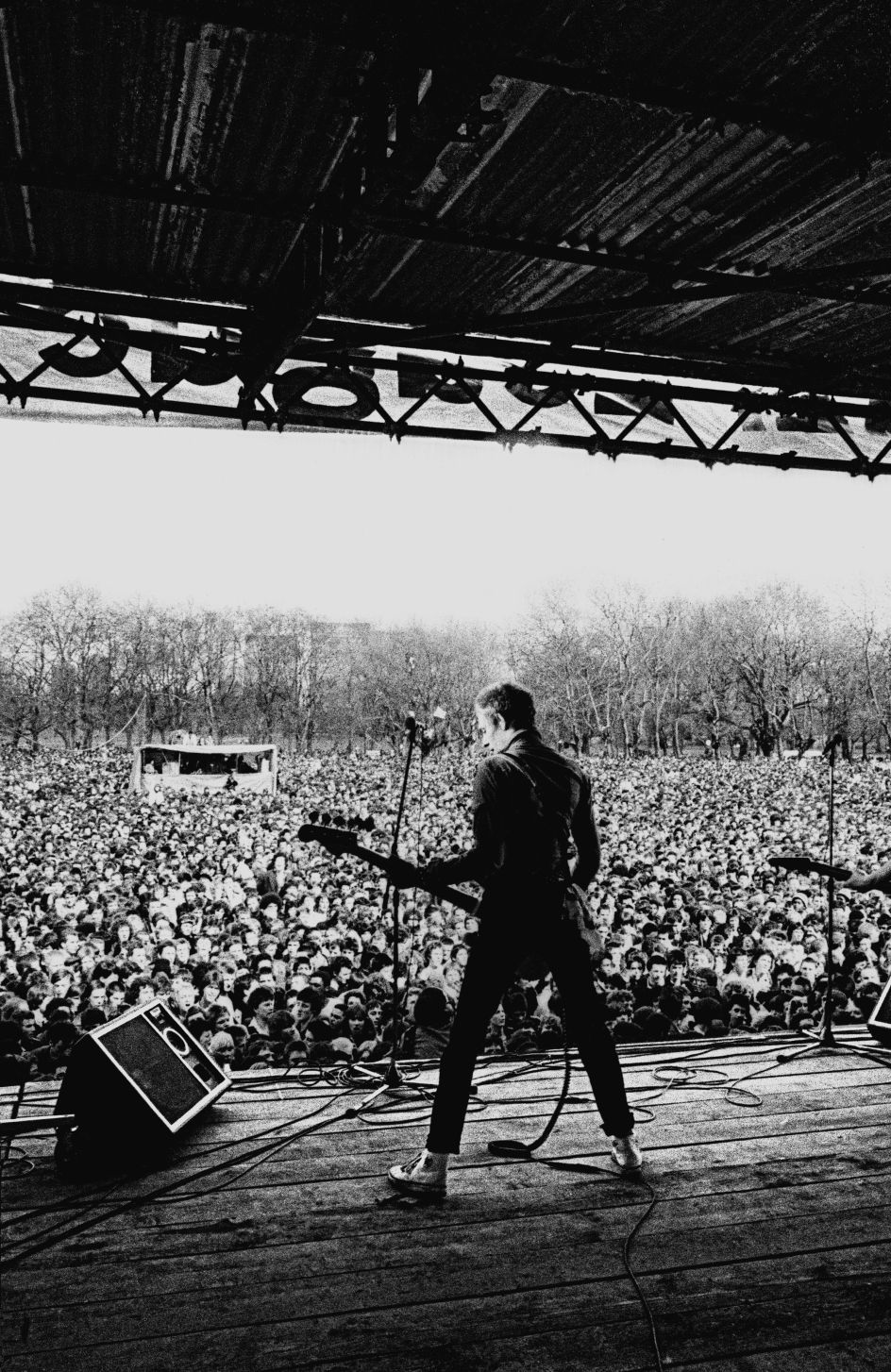
Paul Simonon, The Clash, Rock Against Racism / Anti Nazi League Carnival 1, Victoria Park, East London 30 April 1978. The Carnival line-up also included punk poet Patrick Fitzgerald, X-ray Spex, Steel Pulse and Tom Robinson Band
What was the feeling back then? Describe what you experienced personally
"We were lucky because UK reggae and punk both emerged from the inner cities as a rebellious musical political backlash against a society which had no place for a whole multi-racial generation. We were amazed how much resistance there was out there and for those five years we felt a fantastic empowerment before it was all smashed by the election of Thatcher and the start of the long neo-liberal project.
"When we, together with The Anti Nazi League, organised the first 'Carnival' on the eve of the 1978 Greater London Council elections we had in our most optimistic mode imagined 20,000 people turning up. Instead 100,000 marched danced and rocked their way across seven miles of London streets from Trafalgar Square to Victoria Park in the East End to see Patrick Fitzgerald, X-Ray Spex, Steel Pulse, The Clash and the Tom Robinson Band. As Billy Brag was to say years later, 'that was the day my generation took sides'."
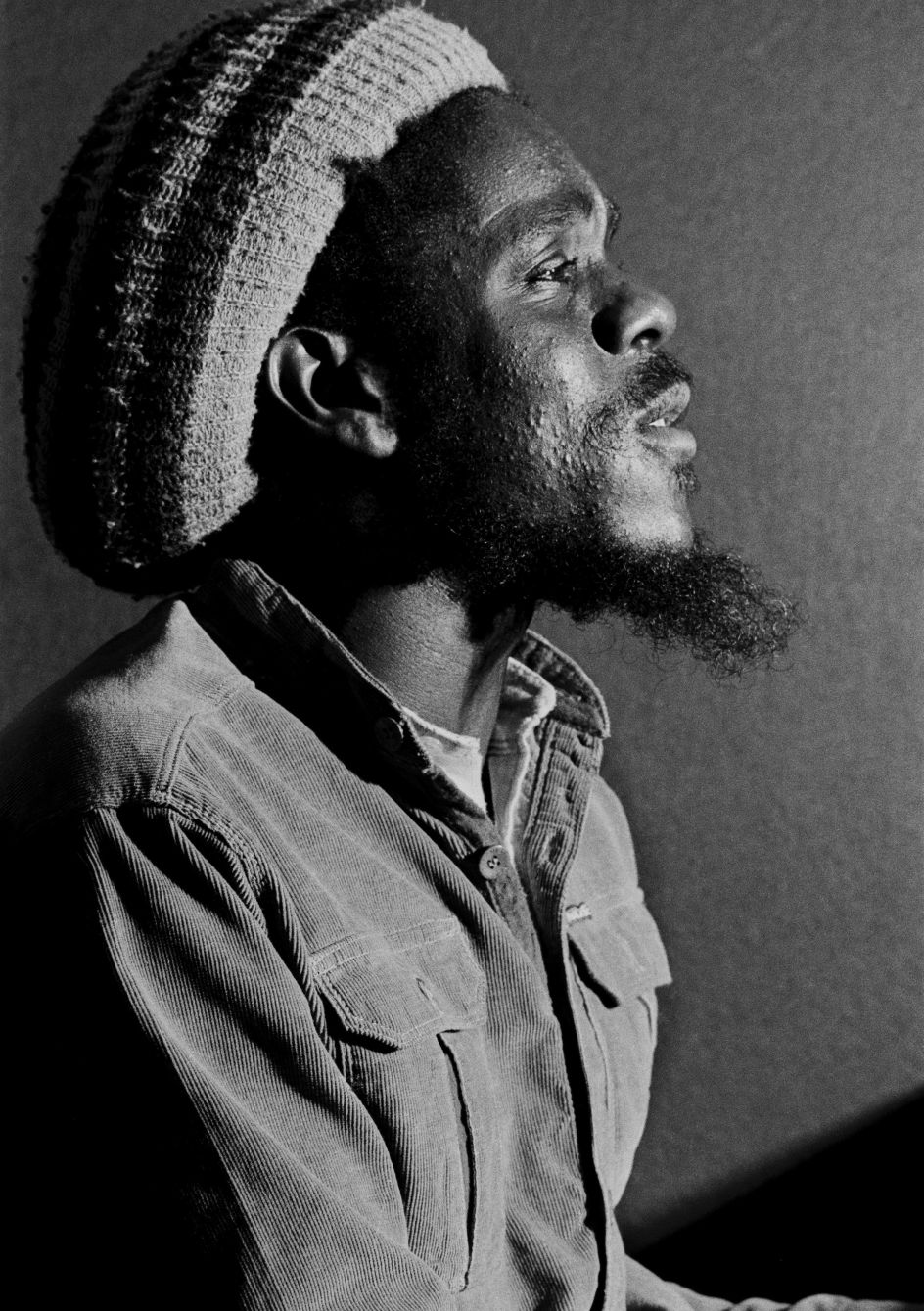
Jamaican reggae artist Dennis Brown at Berry Street studios, London 1981
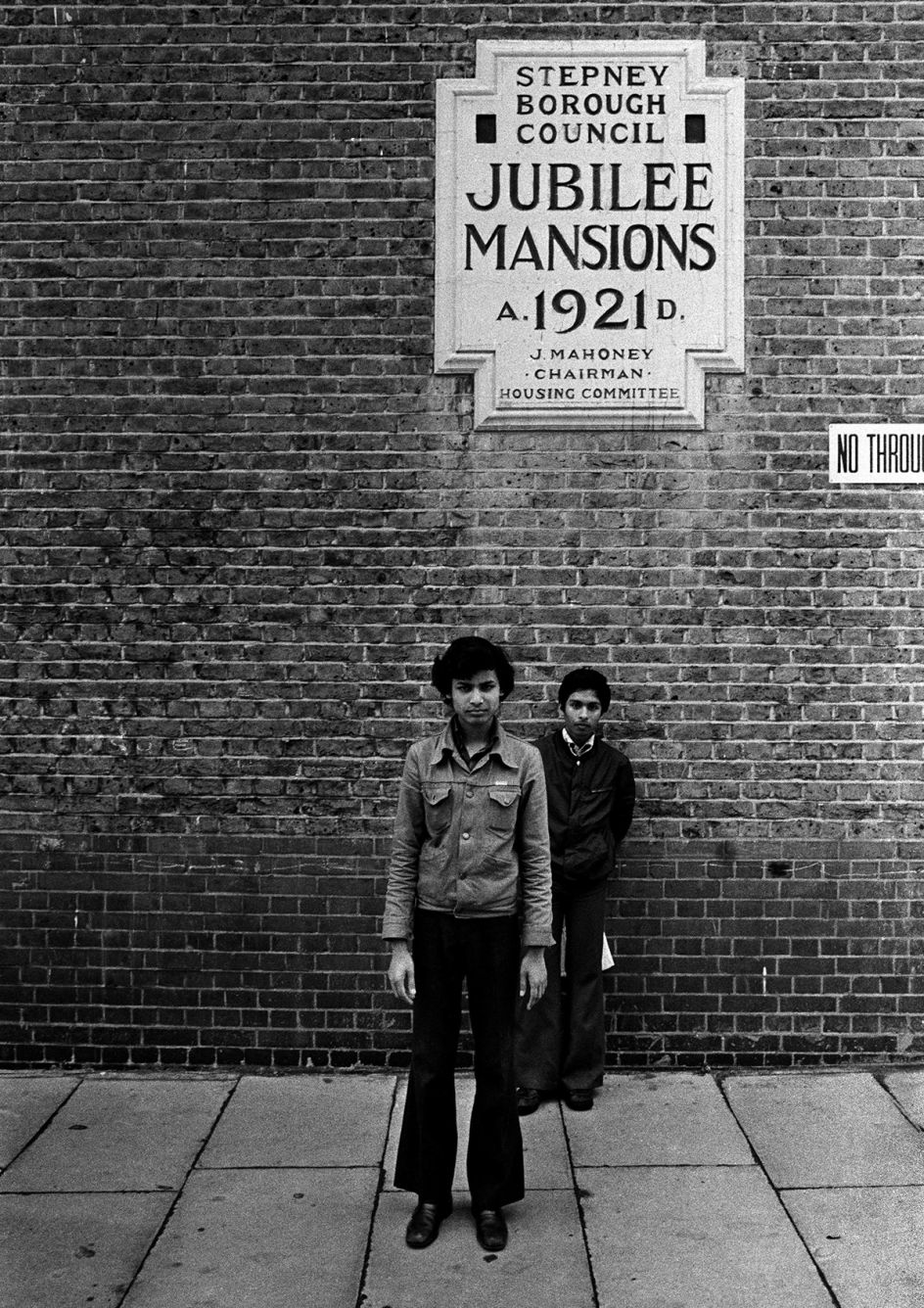
Jubilee Street, Stepney, London 1977. The photograph was taken during the celebrations of Queen Elizabeth II Silver Jubilee as a statement of reaction to Britain’s multiculturalism
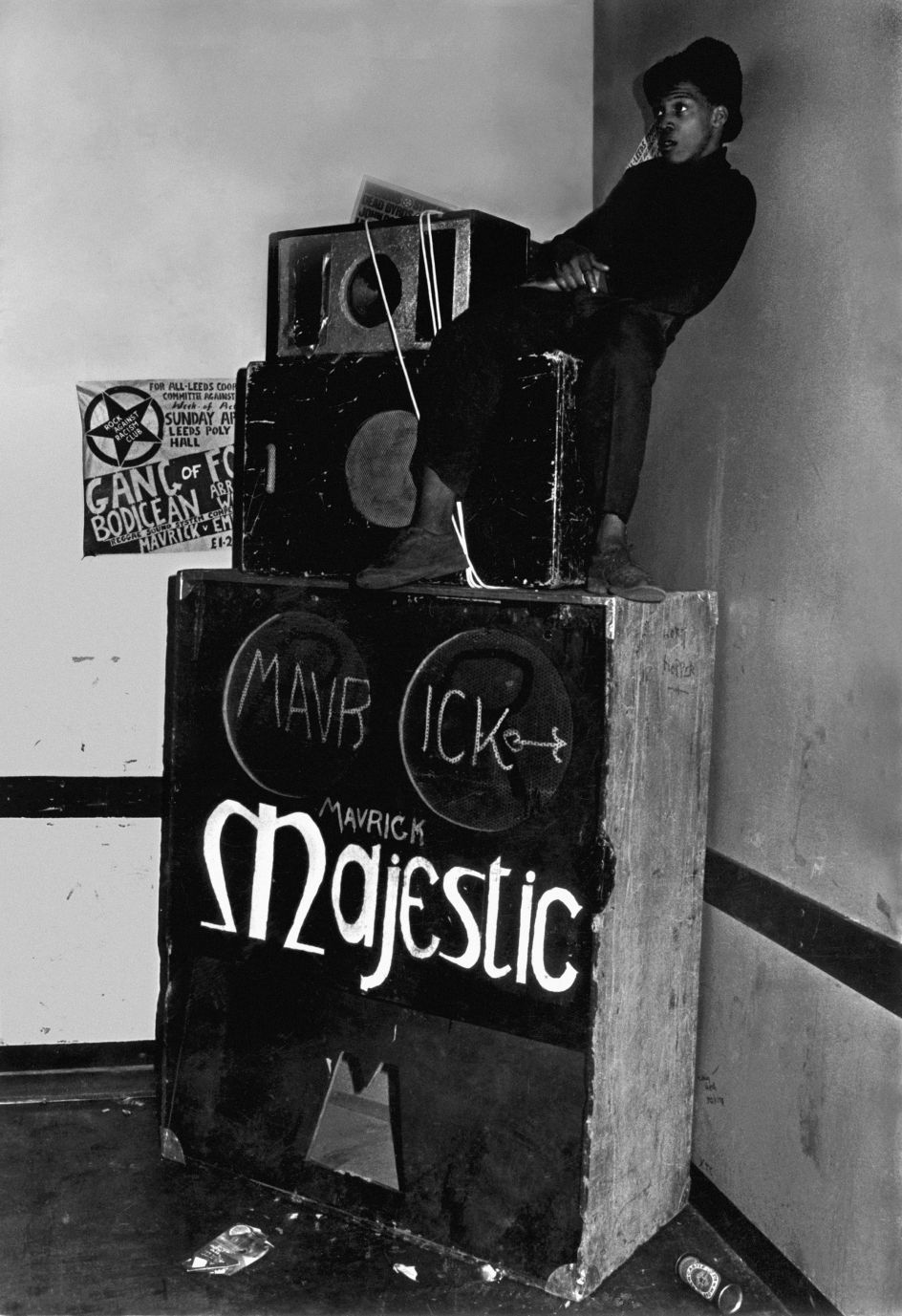
Skully Roots (Jeff Walwyn), Majestic Sounds, Militant Entertainment Tour, Leeds 1979
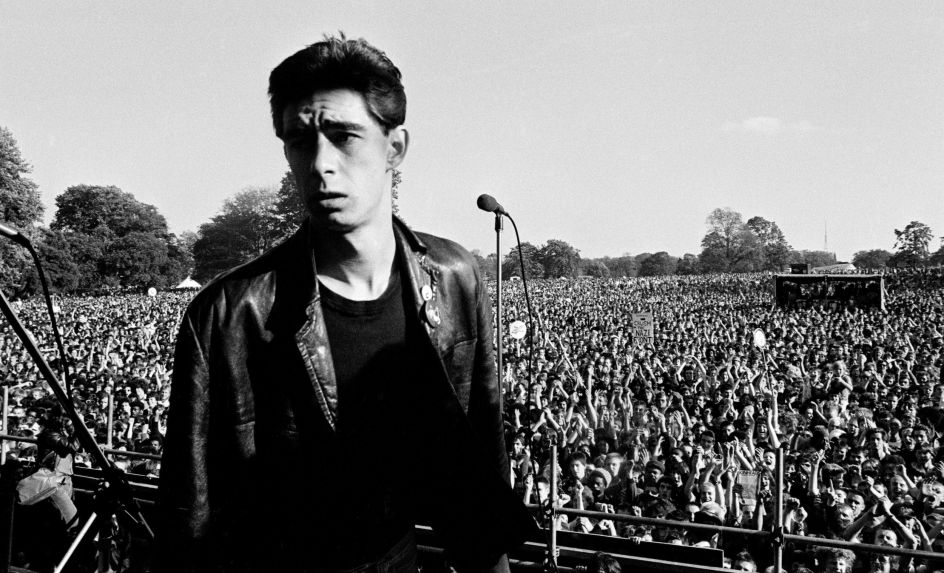
Jimmy Pursey, Sham 69, Carnival 2, Brockwell Park, Brixton, 24 September 1978. Sham 69 was billed to play but due to death threats in reaction to their anti-racist stance, pulled out. Jimmy Percy did appear and made a brave, passionate anti-racist speech to the Carnival crowd
Is there any photograph from the series that stands out for you? Why?
"This is an interesting question because I have been asked it a lot and end up giving different answers maybe depending on which way the wind is blowing. I think today its Jimmy Percy, lead singer of Sham 69 at Carnival 2, Brockwell Park Brixton in 1978.
"A few days before the Carnival Sham 69 did a Rock against Racism Gig at Central London poly with RAR favourites Misty in Roots and the gig was infiltrated by a racist gang. We had heard through the grapevine this might happen and the stage was protected by security from Southall courtesy of Misty in Roots. They were defeated and immediately issued death threats against Jimmy Percy.
"Jimmy was persuaded that the threats were real which forced him and the band to withdraw from the Carnival and they were hastily replaced by Northern Ireland's brilliant Stiff Little Fingers. I was back stage at the event, re-loading my cameras with film, in the pause between Aswad and Elvis Costello's sets, when the big door at the back burst open and Jimmy Percy brushed past me and headed for the mic at the front of the stage.
"He made a brave and impassioned speech condemning the racists and pledging his support for Rock Against Racism. He then turned round and for a fraction of a second looked at me with his stressed-out face, then he was gone. I hoped I had got the shot but this was long before the days of auto-focus and auto-exposure and it wasn't until I got in the darkroom late that night that I knew I had the shot. For me it was a decisive photographic moment, but also decisive anti-racist moment."
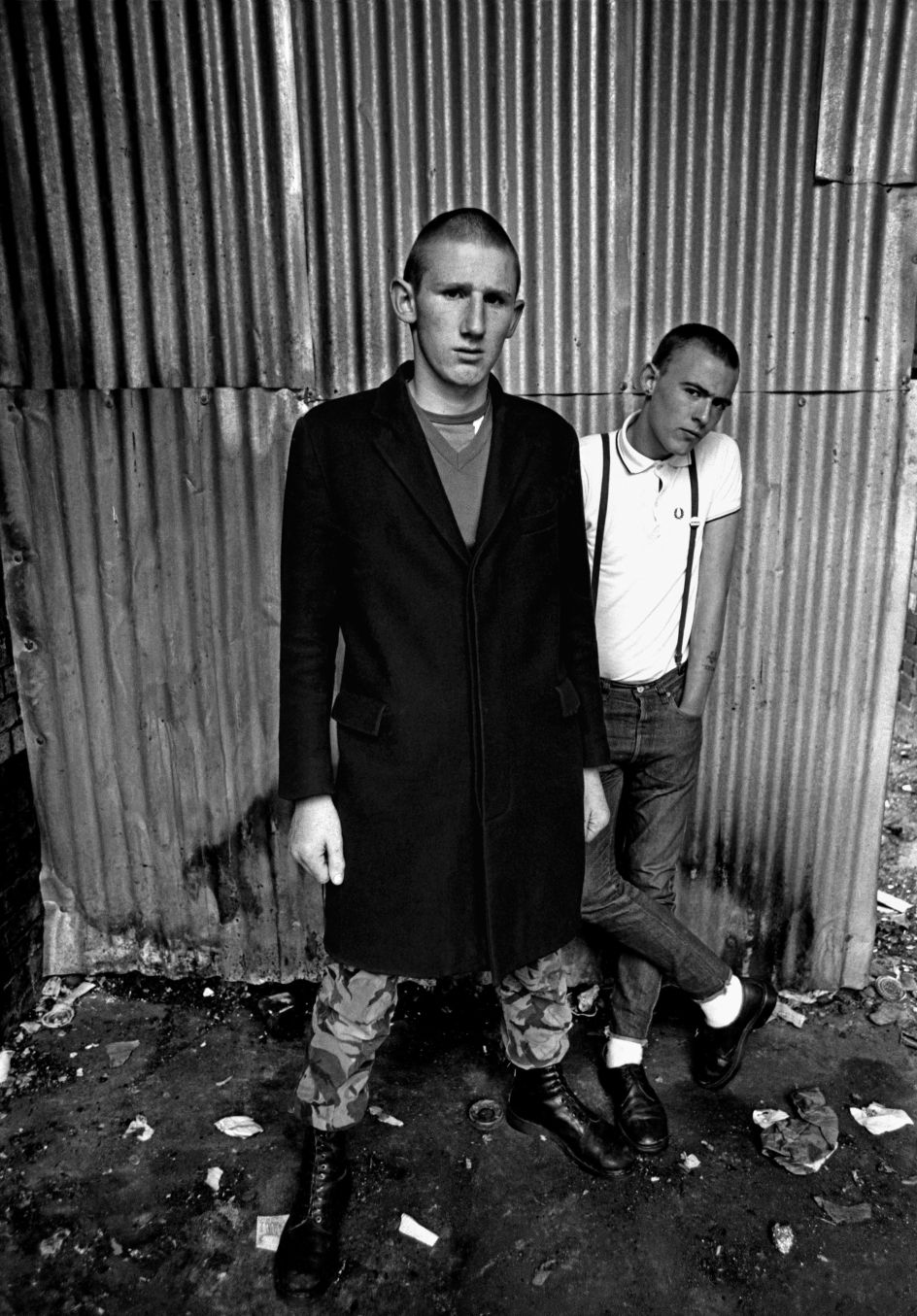
Skinheads, Petticoat Lane, East London 1979
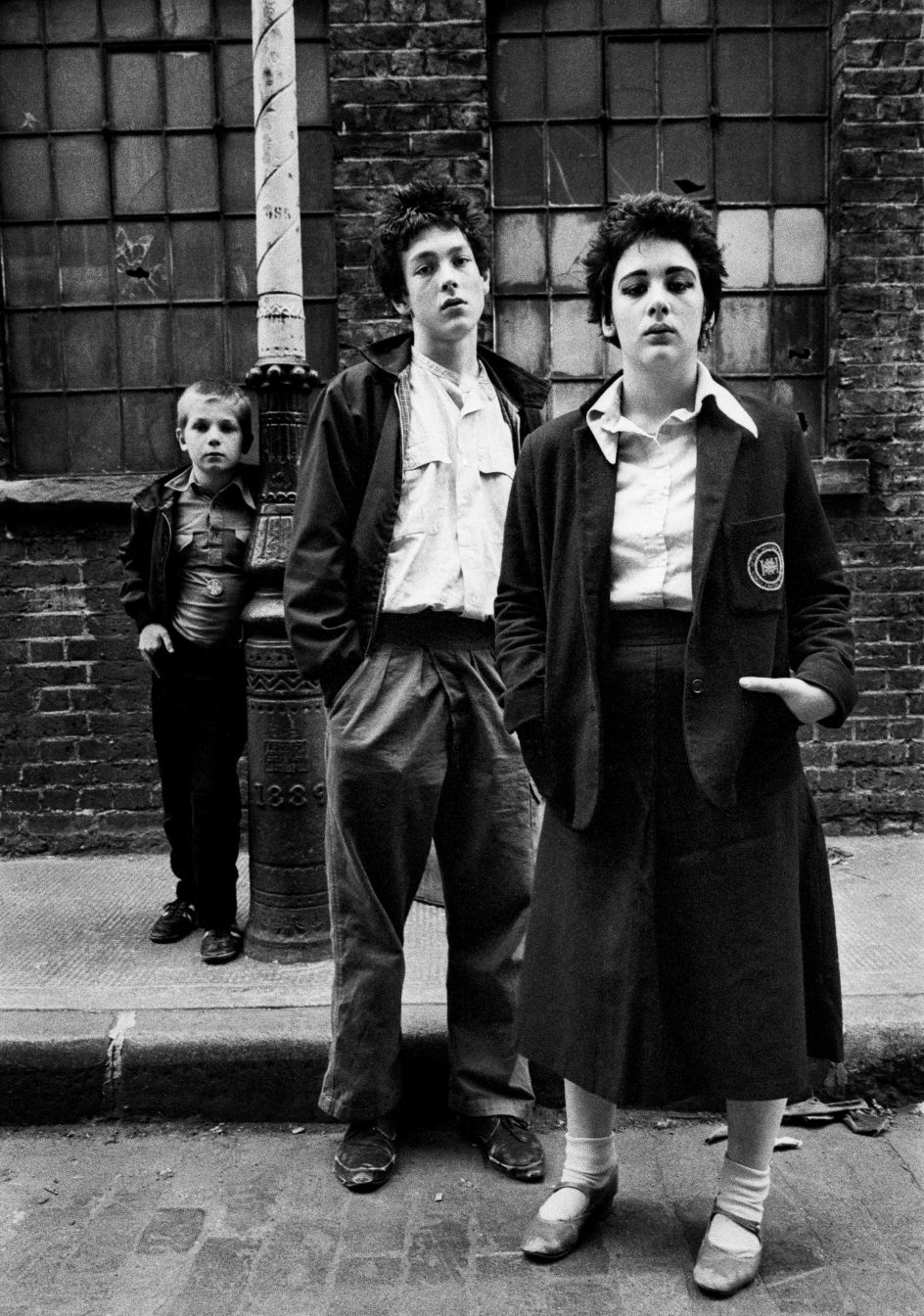
RAR fans Paul Duncan and Lucy Tilney, Bethnal Green, East London 1978
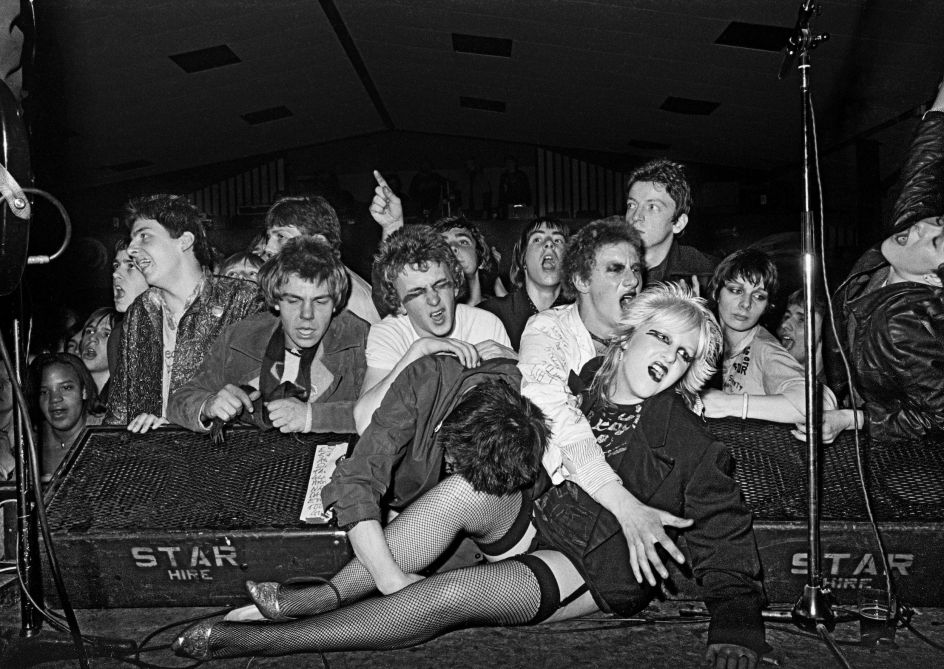
Militant Entertainment Tour, West Runton Pavilion, Cromer, Norfolk 1979
Now you can see a selection of Shelton's photographs at a new exhibition at Street Level Photoworks in Glasgow until 9 April 2017. Discover more info at: streetlevelphotoworks.org.
Main image: Specials fans, Potternewton Park, Leeds 1981 | All Images: © Syd Shelton. Courtesy of the artist and Autograph ABP




 by Tüpokompanii](https://www.creativeboom.com/upload/articles/58/58684538770fb5b428dc1882f7a732f153500153_732.jpg)


 using <a href="https://www.ohnotype.co/fonts/obviously" target="_blank">Obviously</a> by Oh No Type Co., Art Director, Brand & Creative—Spotify](https://www.creativeboom.com/upload/articles/6e/6ed31eddc26fa563f213fc76d6993dab9231ffe4_732.jpg)








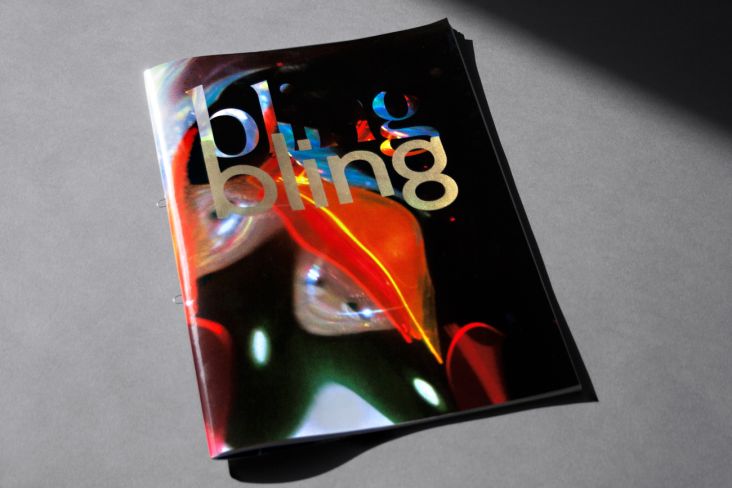

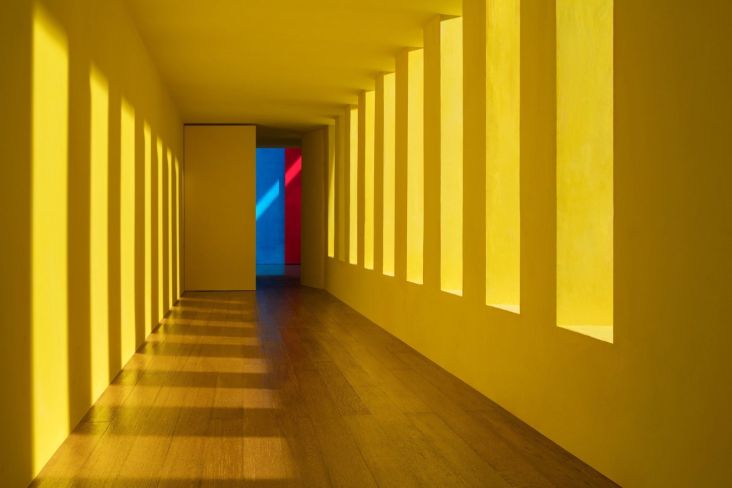
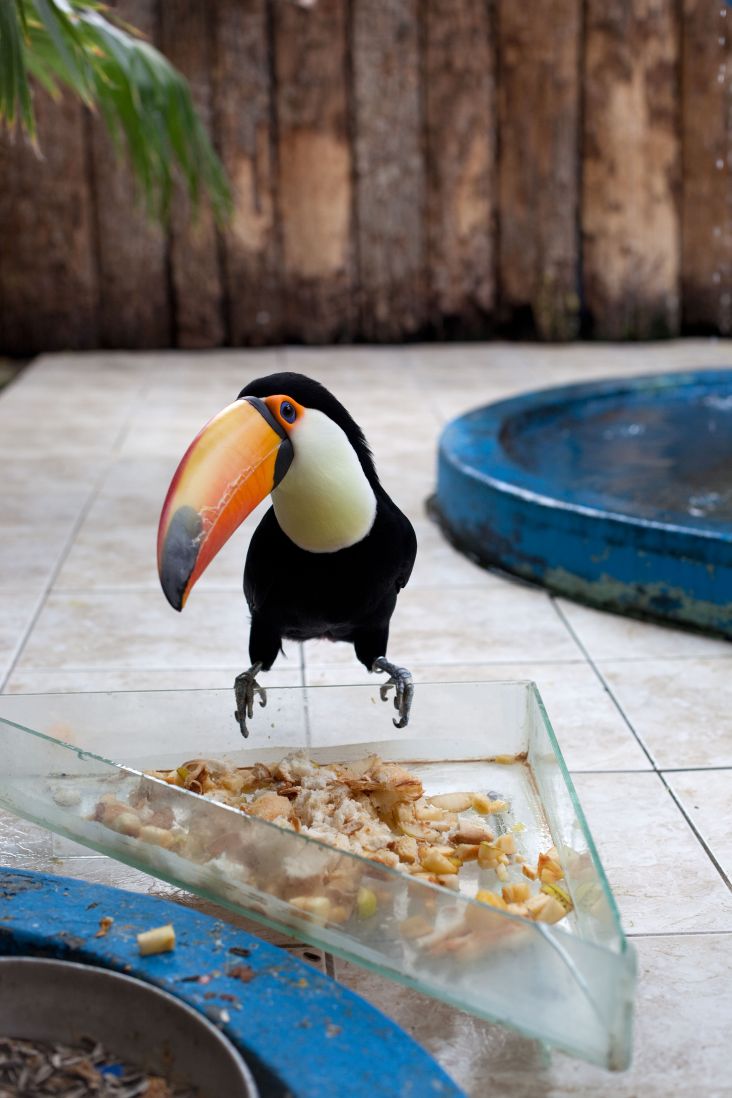
](https://www.creativeboom.com/upload/articles/f5/f53946a7aa1cb8a87d2b613f09ed0e7cfb7d6949_732.jpeg)
